Photosynthesis and Respiration -> weather
Weather
Weather refers to the state of the atmosphere at a specific place and time. It includes elements such as temperature, humidity, precipitation, wind speed, and atmospheric pressure. Understanding weather is important as it affects daily activities, agriculture, transportation, and more.
Key Concepts to Understand Weather
- Temperature: The measure of how hot or cold the air is. It is usually measured in degrees Celsius or Fahrenheit.
- Humidity: The amount of water vapor present in the air. It influences how comfortable or uncomfortable the air feels.
- Precipitation: Any form of water, liquid or solid, that falls from the atmosphere and reaches the ground. This includes rain, snow, sleet, and hail.
- Wind: The movement of air. Wind speed and direction are important components of weather.
- Atmospheric Pressure: The force exerted by the weight of the atmosphere. It is an important factor in predicting short-term weather changes.
- Weather Forecasting: The process of predicting the state of the atmosphere at a future time and location. It involves the use of data from various sources such as satellites, radar, and weather stations.
Factors Affecting Weather
Several factors influence weather, including:
- Sunlight: The uneven heating of the Earth's surface by the sun leads to variations in temperature and pressure, causing atmospheric circulation and ultimately, weather patterns.
- Latitude: Locations closer to the equator generally experience warmer temperatures, while those closer to the poles are colder.
- Topography: The physical features of the land, such as mountains and bodies of water, can influence local weather patterns.
- Air Masses: Large bodies of air with similar temperature and humidity characteristics that move and interact to create weather changes.
- Fronts: Boundaries between air masses with different characteristics. The interaction of fronts can lead to the formation of clouds, precipitation, and changes in temperature.
Studying Weather
To understand weather, it's important to study meteorology, which is the scientific study of the atmosphere. Here are some key topics to focus on:
- Atmospheric Layers: Learn about the different layers of the Earth's atmosphere, including the troposphere, stratosphere, mesosphere, thermosphere, and exosphere.
- Cloud Formation: Understand how clouds form and the different types of clouds, such as cumulus, stratus, and cirrus clouds.
- Weather Instruments: Explore the tools used to measure and observe weather conditions, including thermometers, barometers, hygrometers, anemometers, and weather vanes.
- Weather Patterns: Study different weather phenomena such as thunderstorms, tornadoes, hurricanes, and the factors that contribute to their formation.
- Climate vs. Weather: Differentiate between climate, which refers to long-term patterns of temperature, precipitation, and wind in a region, and weather, which is the short-term state of the atmosphere.
By understanding these key concepts and studying meteorology, you can gain a deeper appreciation for the complexities of weather and its impact on our daily lives.
.◂Science Worksheets and Study Guides Seventh Grade. Photosynthesis and Respiration
Worksheet/Answer key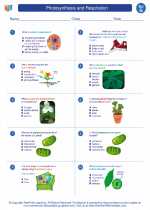 Photosynthesis and Respiration
Photosynthesis and Respiration  Worksheet/Answer key
Worksheet/Answer key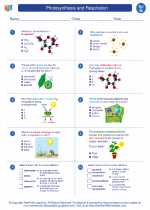 Photosynthesis and Respiration
Photosynthesis and Respiration  Worksheet/Answer key
Worksheet/Answer key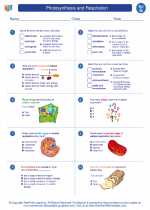 Photosynthesis and Respiration
Photosynthesis and Respiration  Vocabulary/Answer key
Vocabulary/Answer key Photosynthesis and Respiration
Photosynthesis and Respiration  Vocabulary/Answer key
Vocabulary/Answer key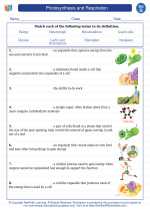 Photosynthesis and Respiration
Photosynthesis and Respiration  Vocabulary/Answer key
Vocabulary/Answer key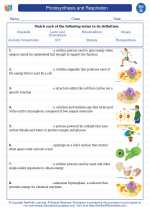 Photosynthesis and Respiration
Photosynthesis and Respiration 

 Worksheet/Answer key
Worksheet/Answer key
 Worksheet/Answer key
Worksheet/Answer key
 Vocabulary/Answer key
Vocabulary/Answer key
 Vocabulary/Answer key
Vocabulary/Answer key
 Vocabulary/Answer key
Vocabulary/Answer key

The resources above cover the following skills:
LIFE SCIENCE
Ecosystems: Interactions, Energy, and Dynamics
Examine the cycling of matter between abiotic and biotic parts of ecosystems to explain the flow of energy and the conservation of matter.
Generate a scientific explanation based on evidence for the role of photosynthesis and cellular respiration in the cycling of matter and flow of energy into and out of organisms.